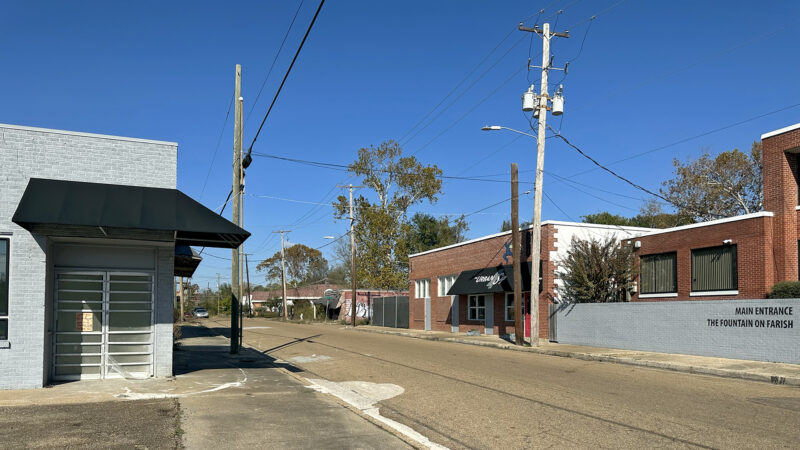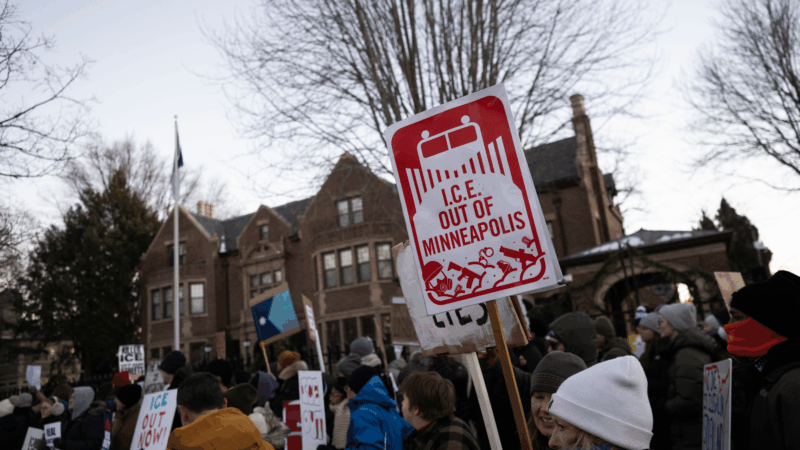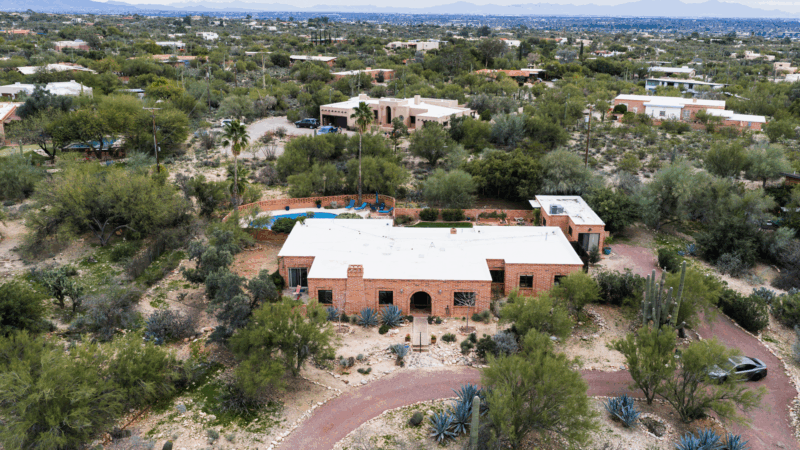How making Jackson’s famed Farish Street more green could also help cool it off
A stretch of the Farish Street Historic District in Jackson, Mississippi, on Nov. 18, 2023. Farish Street has been designated as an urban heat island and is one of the hottest points in the Jackson Metropolitan Area.
As you walk along Farish Street in Jackson, Mississippi, there are a lot of markers that point toward its origins. People who came out of slavery built it, and within the confines of Jim Crow laws, they carved out a prosperous Black community that lived and worked just blocks away from where the Mississippi State Capitol sits today.
But there’s a direct link between that early segregation, and practices like redlining, to one of the biggest problems this neighborhood is dealing with today — heat.
Urban areas like the Farish Street Historic District are, on average, warmer than the surrounding rural areas. It’s what’s known as an urban heat island — an area where temperatures are higher because buildings and roads absorb heat. Analysis of Jackson’s heat island map, however, reveals that neighborhoods that historically faced discrimination, like Farish Street, are usually the hottest areas in the metro area.
But for the past three years, community members, business owners, climate activists and architects who call the historic district home have been meeting to address this issue with the Jackson Redevelopment Authority, an urban renewal agency created by the city. They believe investing in more green infrastructure — like planting trees or having more green space — will help mitigate the effects of the heat. This comes around a time when the European Union’s Copernicus Climate Change Service recently declared that 2023 is the hottest year ever recorded.
‘My solitary objective is to change this map’
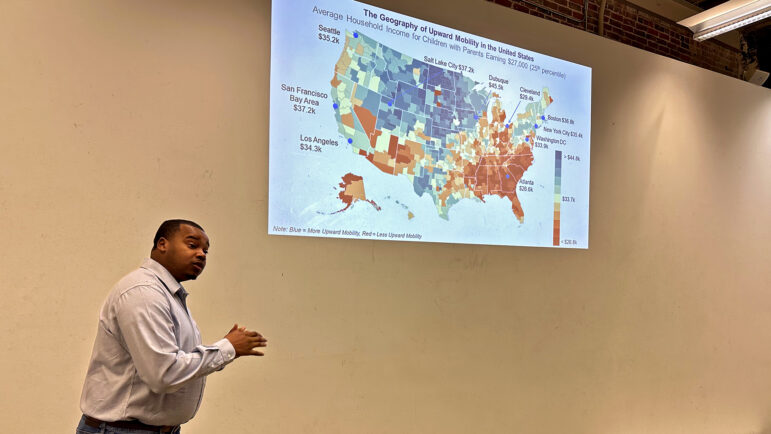
In mid-November, a group of about 20 people gathered to talk about the latest heat mitigation plans. Early in the meeting, they look over a map illustrating the areas of the United States that have more economic mobility, or people’s chances of improving their economic status. Most of the Gulf South, including Mississippi, is deep red, signaling a lower chance of getting out of poverty for residents.
“You can sum up most of my life with this map,” said Alex Lawson, chair for the Jackson Redevelopment Authority. “My goal, my solitary objective, is to change this map.”
In Jackson, showing its economic mobility data next to the city’s heat index makes it pretty clear that most of the places in town that get the hottest are also the poorest.
“So it’s not just economic conditions, it’s climate conditions,” Lawson said. “It’s all of the things that we’re working to change and eradicate here. And this is what people are flocking from Jackson from.”
As climate change intensifies, marginalized communities like Farish Street rarely have the resources to adjust. But that could change soon.
2C Mississippi, a climate advocacy group, received federal funding from the U.S. Department of Agriculture Forest Service to plant trees and shrubbery on Farish Street. The move is not just for making the neighborhood look pretty, though. The Environmental Protection Agency says planting trees can help reduce temperatures in cities by providing shade, deflecting sun radiation, and releasing moisture.
Frank Figgers, a veteran civil rights advocate in Jackson, sees the project as a small part of a big-picture strategy of improving people’s lives on Farish Street.
“Lowering the temperature could mean saving the lives of people or reducing their energy bill and having more money to spend on good food,” Figgers said. “It’s all connected.”
Bringing back its legacy
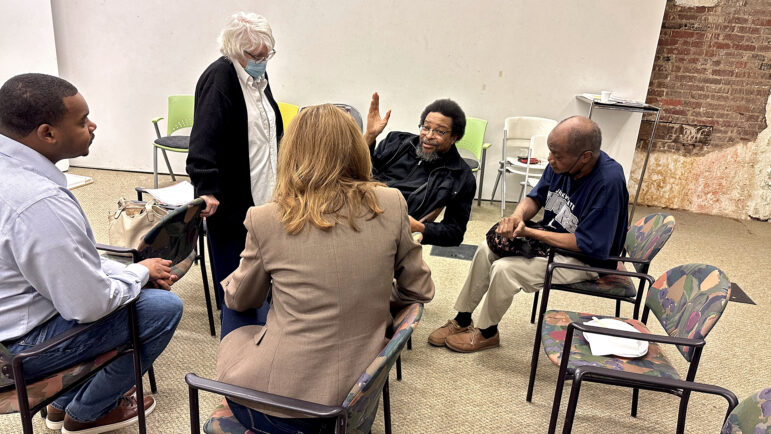
This project comes as Jackson, and Mississippi overall, is experiencing some of its hottest months ever on record. Just this year, Jackson saw 23 days above 100 degrees, according to the National Weather Service.
Under the Inflation Reduction Act, billions of dollars have been dedicated to climate action. 2C Mississippi got a small sliver of that — $1.5 million. They used it to push projects like the tree planting initiative forward, a move that was years in the making.
“The heat island mapping campaign was carried out in 2020, in the middle of (the) pandemic,” said Dominika Parry, the founder of 2C Mississippi.
2C Mississippi partnered with the City of Jackson to collect data on heat effects across the city. From there, they identified Farish Street as a good place to focus on because of its importance culturally and its high temperatures. Then, they started hosting community meetings to design a green space to help lower the temperature in the Farish Street district. For the heat project, they’ll use native plants that are resilient to drought and high sun exposure.
Three parcels of land on Farish Street that total approximately 35,000 square feet will be converted into green space. The parcels will include trees for shade and additional greenery, like shrubs. They’re also trying to design them to be used for community events. A stage for outdoor events and concerts will also have a rain-collecting roof that can help water plants and green canopies developed with wooden trellises will shade outdoor seating. Vertical gardens will cool off some buildings, as well as some fencing.
But the process has had its hiccups.
The meeting in mid-November was supposed to be where the community approved a final design. But the city informed the group that a group of businesses that want to set up shop on Farish Street has claims to a portion of one of the parcels of land — sending them back to the drawing board.
People were initially upset at the change in plans, but Parry said it is important to get the full support of all Farish Street community members since it’s their project.
“Everything was designed by the community, not us,” Parry said. “So I don’t want to just come in and change it.”
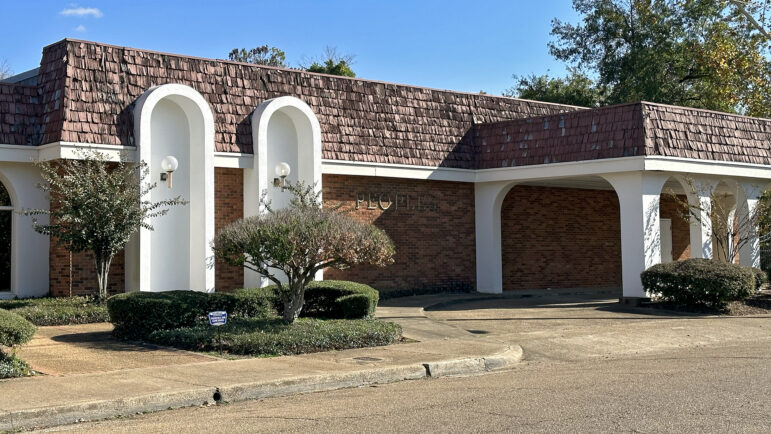
During the meeting, the group hashed out a new plan focused on accommodating the surrounding businesses’ requests for portions of the space. They hope this plan will still meet the requirements for the federal funds to keep them on schedule for their disbursement at the beginning of 2024. Parry said plans could change, but the next steps will be a new design, hopefully by mid-January. After the redesign, they will start site preparations and demolitions, with plans to plant the first trees and shrubs in the fall.
Dorothy Davis, president of the Farish Street Communities of Shalom and a representative for those unable to make the meetings, is hopeful about what the plan could mean for Farish Street. She’s grown up here, and she sees this project and all the efforts to revitalize Farish Street as bringing back its historic legacy.
“Going back to my childhood, you lived, worked, (ate), worshiped and died all on Farish Street — because we even have two funeral homes on Farish Street,” Davis said. “It was from beginning to ending.”
Looking beyond Farish Street, Davis wants this project to be a model of what other cities can do to help their marginalized communities. She ties it back to Farish Street’s roots.
“Farish Street should be the blueprint for everything because if you know the history, it was a place that was built really by people that came out of slavery,” Davis said. “But then we ended up with millionaires and doctors and lawyers living and working [here]. So this is very important to bring all this back.”
Editor’s Note: This story has been updated to reflect that the Farish Street project has been developed with the Jackson Redevelopment Authority, not the City of Jackson.
This story was produced by the Gulf States Newsroom, a collaboration between Mississippi Public Broadcasting, WBHM in Alabama, WWNO and WRKF in Louisiana and NPR.
Jordan Stolz opens his bid for 4 golds by winning the 1,000 meters in speedskating
Stolz received his gold for winning the men's 1,000 meters at the Milan Cortina Games in an Olympic-record time thanks to a blistering closing stretch. Now Stolz will hope to add to his collection of trophies.
US Colleges received more than $5 billion in foreign gifts, contracts in 2025
New data from the U.S. Education Department show the extent of international gifts and contracts to colleges and universities.
On his long-awaited ‘Fall-Off,’ J. Cole returns a new man, old man and everyman
After dropping out of modern rap's defining conflict, the Fayetteville MC contemplates the making and breaking of a legacy.
Swing voters in Arizona say they want to see ICE reformed
Concerns about the tactics of federal immigration agents remain front of mind for some key voters who supported President Trump in 2024.
Free speech lawsuits mount after Charlie Kirk assassination
Months after the killing of Charlie Kirk, a growing number of lawsuits by people claim they were illegally punished, fired and even arrested for making negative comments about Kirk.
How the FBI might have gotten inaccessible camera footage from Nancy Guthrie’s house
Last week, law enforcement said video footage from Nancy Guthrie's doorbell camera was overwritten. But the FBI has since released footage as Guthrie still has not been found.

